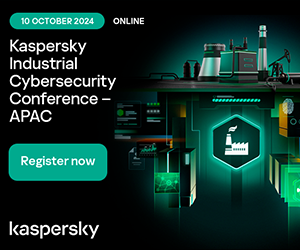Most companies are struggling to move their generative artificial intelligence (Gen AI) projects from initial stages into production, according to a report by consulting giant Deloitte.
“70% of respondents said their organization has moved 30% or fewer of their Generative AI experiments into production,” according to lead author Jim Rowan and team in the latest installment of the firm’s ‘The State of Generative AI in the Enterprise‘ report series.
Also: Enterprises double their Gen AI deployment efforts, Bloomberg survey says
The lack of progress in production contrasts with the flurry of activity around the technology. “Two of three surveyed organizations said they are increasing their investments in Generative AI because they have seen strong early value to date,” reported Rowan and team.
The challenge of moving Gen AI projects from the proof-of-concept stage into production is what Rowan and team call “striving to scale”.
The survey, conducted between May and June, received responses from 2,770 director- to C-suite-level respondents across six industries and 14 countries. The survey also included interview feedback from 25 interviewees, who were C-suite executives and AI and data science leaders at large organizations.
The research suggests “a variety of reasons” why companies struggle to scale Gen AI. Organizations are, generally speaking, “learning through experience that large-scale Generative AI deployment can be a difficult and multifaceted challenge,” the report states.
The reasons why companies struggle to scale Gen AI became clearer when Rowan and team asked the survey respondents to rate the capabilities where they believed their organizations were “highly prepared”. Less than half of respondents felt their organizations were highly prepared for the most basic capabilities.
On average, 45% of respondents said they were highly prepared concerning “technology infrastructure,” and 41% said they thought the organization was highly prepared for “data management”.
The least-prepared areas, the responses show, were “strategy”, with 37% feeling their firm was highly prepared, followed by “risk and governance” and “talent”, with only about a fifth of respondents indicating preparedness in each area.
Also: A third of all Gen AI projects will be abandoned, says Gartner
Some qualitative remarks by executives interviewed revealed more detail on where that lack of preparedness lies. For example, a former vice president of data and intelligence for a media company told Rowan and team that the “biggest scaling challenge” for the company “was really the amount of data that we had access to and the lack of proper data management maturity.”
The executive continued: “There was no formal data catalog. There was no formal metadata and labeling of data points across the enterprise. We could go only as fast as we could label the data.”
Rowan and team suggested in the report that data quality hinders many companies: “Data-related issues have caused 55% of the organizations we surveyed to avoid certain Generative AI use cases.”
The survey showed governance issues included both inherent AI risk and regulatory risk. On the one hand, companies are grappling with “new and emerging risks specific to the new tools and capabilities” that are unlike risks from any previous technology. Those risks include the now-infamous shortcomings of Gen AI, such as “model bias, hallucinations, novel privacy concerns, trust and protecting new attack surface”.
Also: 5 ways CIOs can manage the business demand for generative AI
Uncertainty about novel regulations is also causing companies to pause and think, Rowan and team stated in the report: “Organizations were exceedingly uncertain about the regulatory environment that may exist in the future (depending on the countries they operate in).”
In response to both concerns, companies are pursuing a variety of strategies, Rowan and team found. These strategies include: “shut off access to specific Generative AI tools for staff”; “put in place guidelines to prevent staff from entering organizational data into public LLMs”; and “build walled gardens in private clouds with safeguards to prevent data leakage into the public cloud.”
The lack of scaling for Gen AI projects contrasts with other recent studies that show a strong intent to deploy emerging tech. For example, the most recent Bloomberg Intelligence report on AI found that the rate at which companies deploy generative artificial intelligence “copilot” programs doubled between December of last year and July 2024, hitting 66% of all respondents’ firms.
However, the Deloitte study findings may help to explain why a recent Gartner report on Gen AI in the enterprise predicted one-third of Gen AI projects will be abandoned before moving from the proof-of-concept stage to production.
Even if US CIOs are “working on” deploying Gen AI, and increasingly “evaluating” copilot technology and the like, the Deloitte study suggests they are running into plenty of obstacles as they do so.







